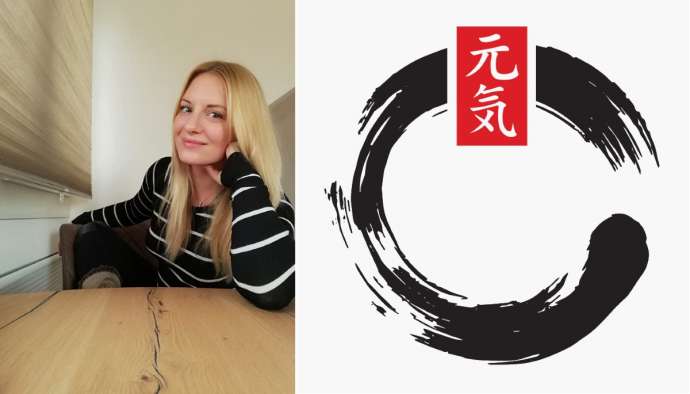This Saturday, 22 June (2019) is the 8th annual Day of Japan (Japonske Dan) in Ljubljana, organized by Genki Center and the Embassy of Japan in Slovenia. We got in touch with Maja Rome, of the Genki Center, and learned more about her work, the Center, and the day itself.
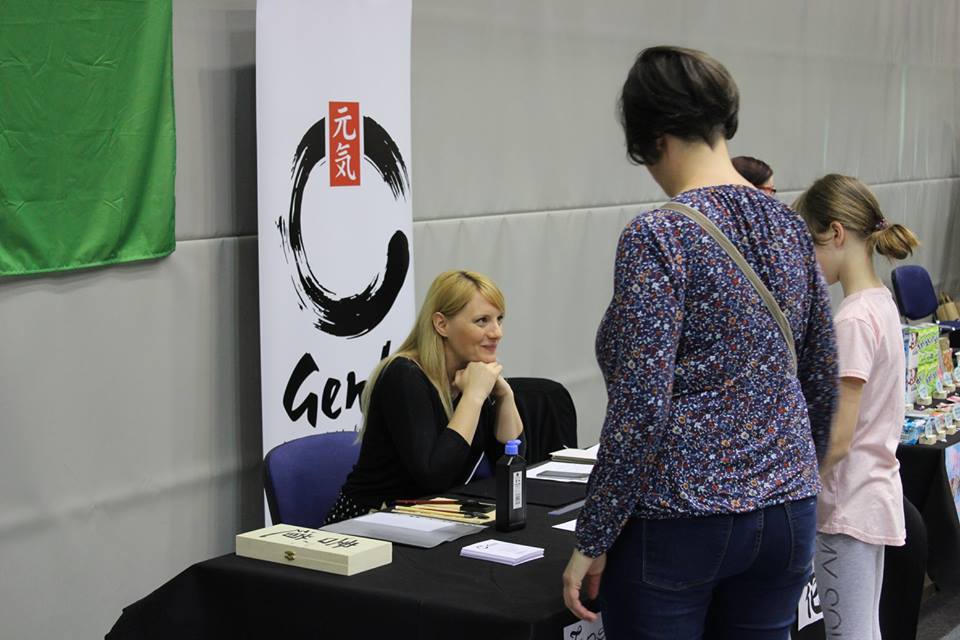
What's your association with Japan?
I am a Japanologist and a sociologist of culture, graduate of the Faculty of Arts in Ljubljana and also studied at Joshi daigaku in Tokyo, Japan. I am a founder and a CEO of Genki Center, and also a president for the organisation behind the Day of Japan event. As a professional in the fields of Japanese culture and language, and a passionate learner of the culture and its language, I carry with me strong passion to promote Japanese culture to Slovenian people. Since it’s very rich in its history, folklore and heritage, many new areas of interest can be found in this island nation.
What is Genki Center?
It’s the first private Japanese educational and cultural centre in Slovenia. We specialize in this area and provide Slovenian people with different kinds of support regarding this culture and language. Our primary activity is teaching Japanese, we have a team of Japanologists and also a native speaker who is a professor of Japanese. We strive for a modern techniques of teaching and provide a very high quality way of learning the language and culture. Together with our clients we create a strong community of people who have the same interests. That is why we are not a language school, but a community of people, organizations and interest groups brought and kept together with the same aim of exploring different aspects of Japanese culture and language.
As part of this work we provide support for companies, advising them on business ethics and language norms, as well as Japanese business relations. We also offer various events, workshops and lectures to teach Slovenian people about Japanese culture, with some children. For example, we have been organizing Japanese summer camps and different Japanese themed events.
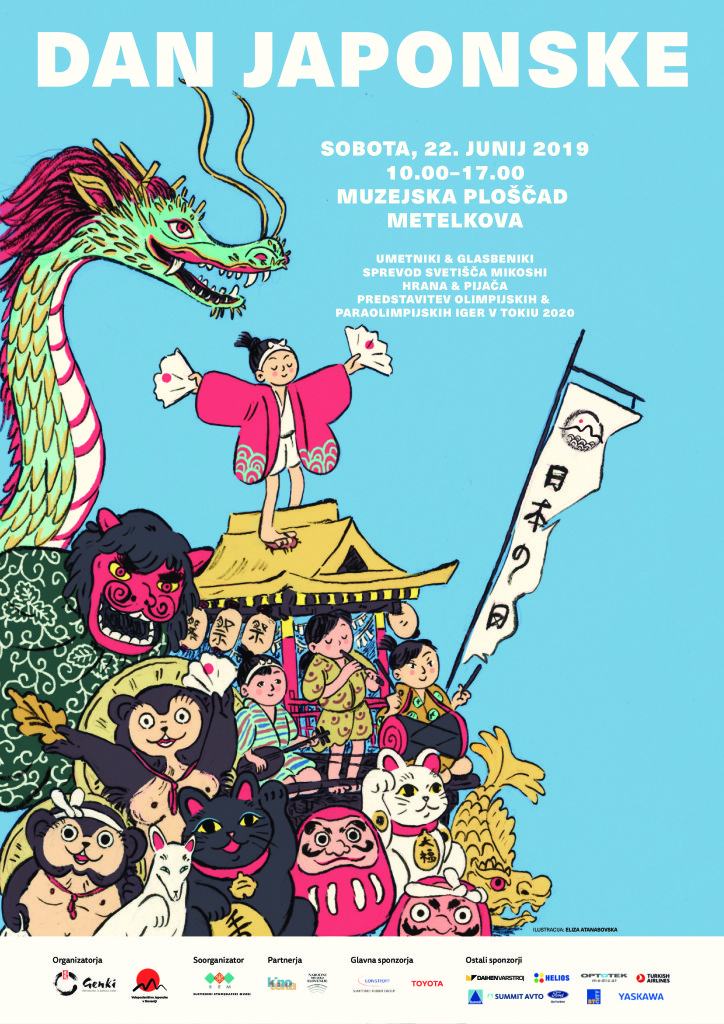
This Saturday, June 22 (2019) is the Day of Japan. How did that start?
This year will be the 8th Day of Japan festival, which has two organizers. The first is Genki Center as initial idea provider and organizer, and the second is the Embassy of Japan in Slovenia, which has co-organized the event for the last seven years.
The idea for the event came after my first small event in Kranj, with the opening of Kranj's new library in 2011. After the success of the “Japanese Evening” my college and I planned to organize our first event at lake Zbilje with the help of local tourist organization. That was in 2012, with the 20th anniversary of diplomatic relations between Japan and Slovenia were taking place, and so we invited the staff at the Embassy of Japan in Slovenia, and a sakura tree as planted to mark the event. After that the Embassy invited me to continue organizing the event with them, and we have been working together successfully ever since.
It may only be one day, but it’s a lot of work. The organization takes about half a year to plan, and every year with the help of volunteers we build an event site from scratch and also tear it down once it is finished.
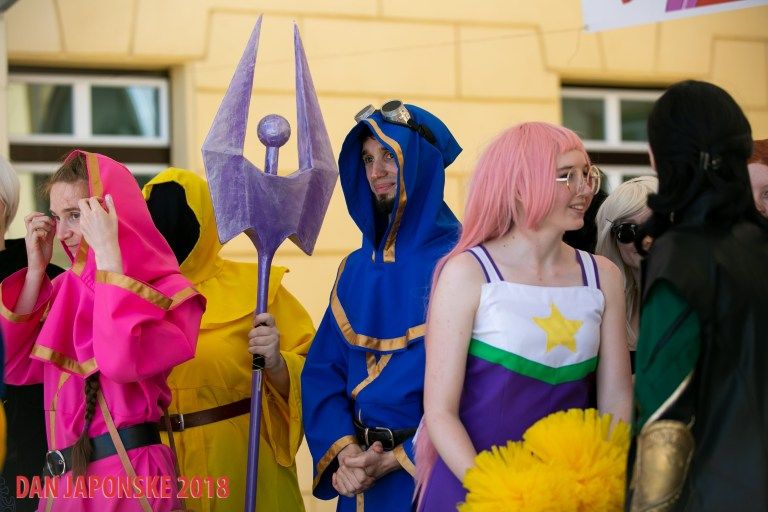
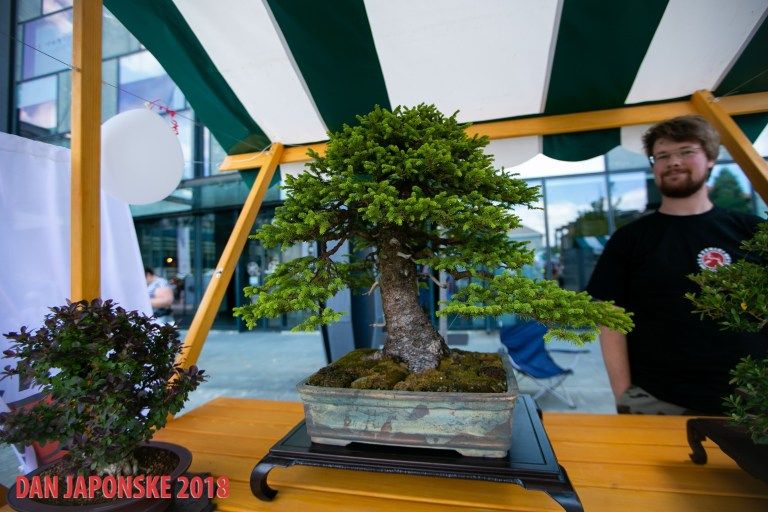
The idea is to bring together the many people in Slovenia who are somehow connected with Japanese culture in a daily life, and also companies and individuals. And it’s not just about showing Japan to Slovenians, but also a way for Japanese people living in Slovenia to feel a part of the community and share their culture with others.
The Day of Japan is a single day event where we strive to bring together as many different aspects of Japanese culture in the same place, at the same time, and a way for people to basically visit the country without leaving Ljubljana. In a single location [the Metelkova museum quarter] we have more than 80 activities, 50 stands, two stages and one lecture hall where we cover many different cultural aspects of Japan – the language, arts, sports, food, crafts and stores. We want to offer as many quality services, products and activities as we can find in Slovenia that are related to Japanese culture. We’ve also invited some guests from Japan, who are willing to enrich the event. This year there are more than 250 participants who are making it all possible, along with more than 30 volunteers.
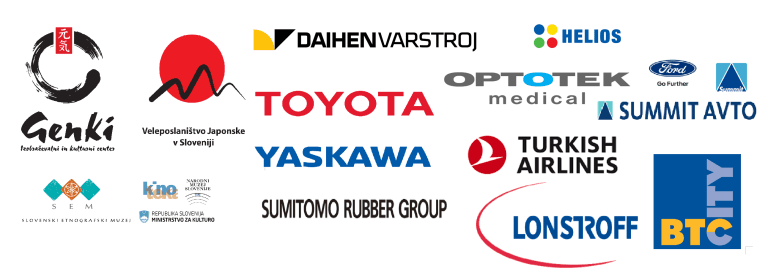
As well as the Embassy of Japan, the event gets a lot of support from companies, and this year there’ll be something from Toyota, Sony, Turkish Airlines (who will be giving away two plane tickets to Japan), BTC City will be there its Society 5.0 project, along with people from the Olympic Games committee and the Paralympic Games committee, who will have a special Olympics corner.
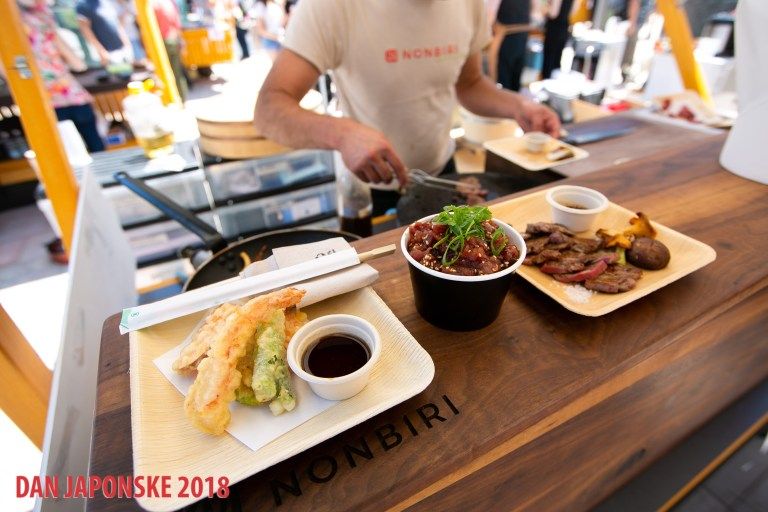
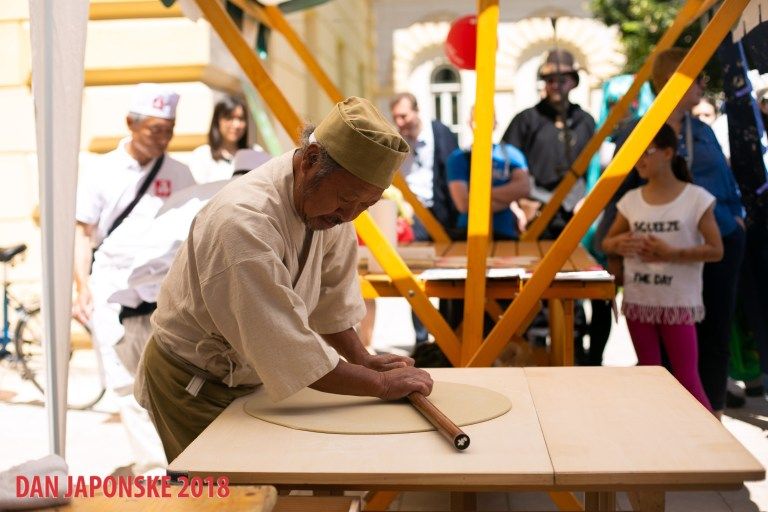
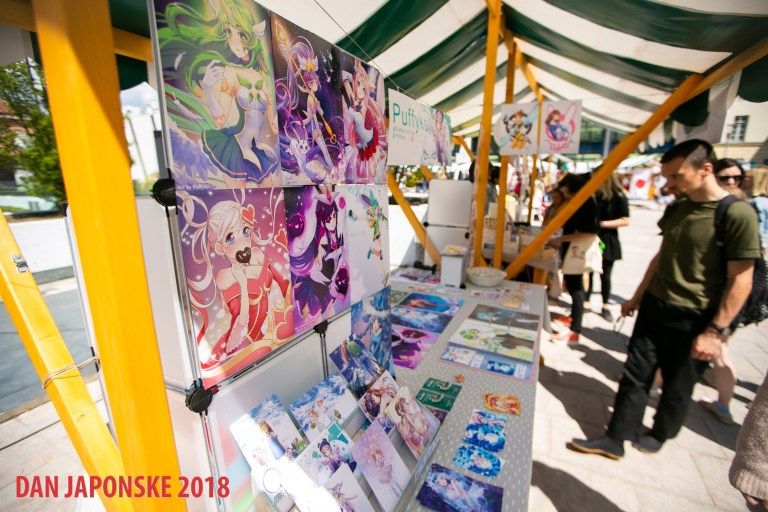
What can people expect to find there?
Among activities we are offering are many martial arts, such as karate, aikido, kyudo, ninjutsu, iaido and kendo, and judo. We also have many artists, young ones who are specializing in Japanese anime and manga, and they will provide us with unique artwork. There will be traditional crafts, too, like ceramics, wooden lacquer, kanzashi and tamari balls. Also in the spiritual area we have zen gong meditation, reiki, and we used to have shiatsu. There will be bonsai, ikebana and Japanese calligraphy, and for younger people there’s a manga corner and cosplay.
For food, we have a sweets corner and food corner, with quite nice variety of Japanese different dishes. The people preparing the Japanese food are trying to stick to the original taste, which is quite difficult to do in Slovenia with regard to finding high quality ingredients. We’ll have a school for Japanese language, Japanese literature, books and travelling to Japan. Every year we also have a children’s corner with many Japanese arts to them to enjoy.
Beyond that, in the lecture room of the Ethnographical Museum of Slovenia we have a photo exhibition, a lecture on traveling to Japan, and workshops for ikebana and calligraphy. On the main stage we have a concert of Trio Tenorjev [Three Tenors], traditional buyo dance, and Japanese pop songs, as well as much using a koto, a traditional instrument.
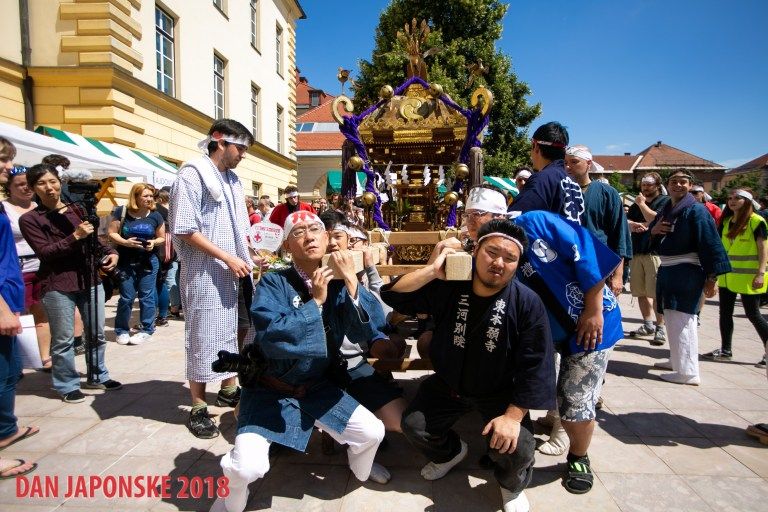
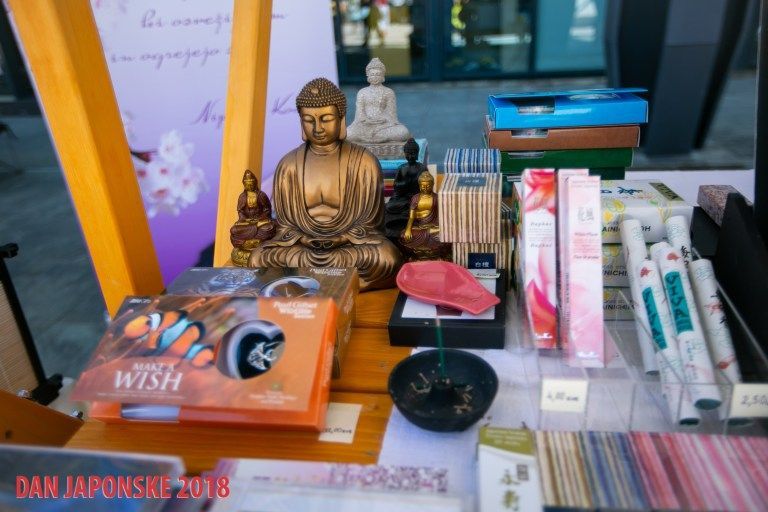
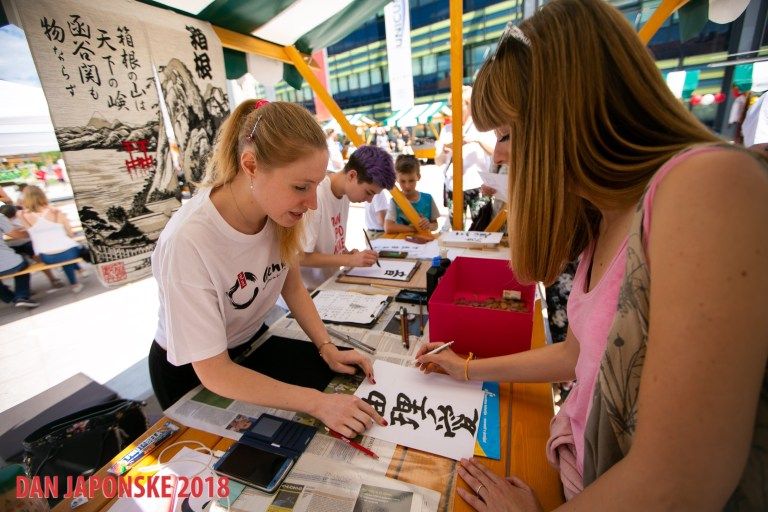
One very special thing will be a portable shrine brought from Kasuga jinja, close to Yokohama, carrying many Japanese deities in order to bless the area with good fortune and luck. It should be a great event. Last year we had more than 3,500 visitors, and hopefully this year the number will be even greater.
You can find the schedule for the Day of Japan (Dan Japonske) here, and follow Genki Center at its website or on Facebook. The event takes place in the museuem quarter of Metelkova, shown on the map below.

